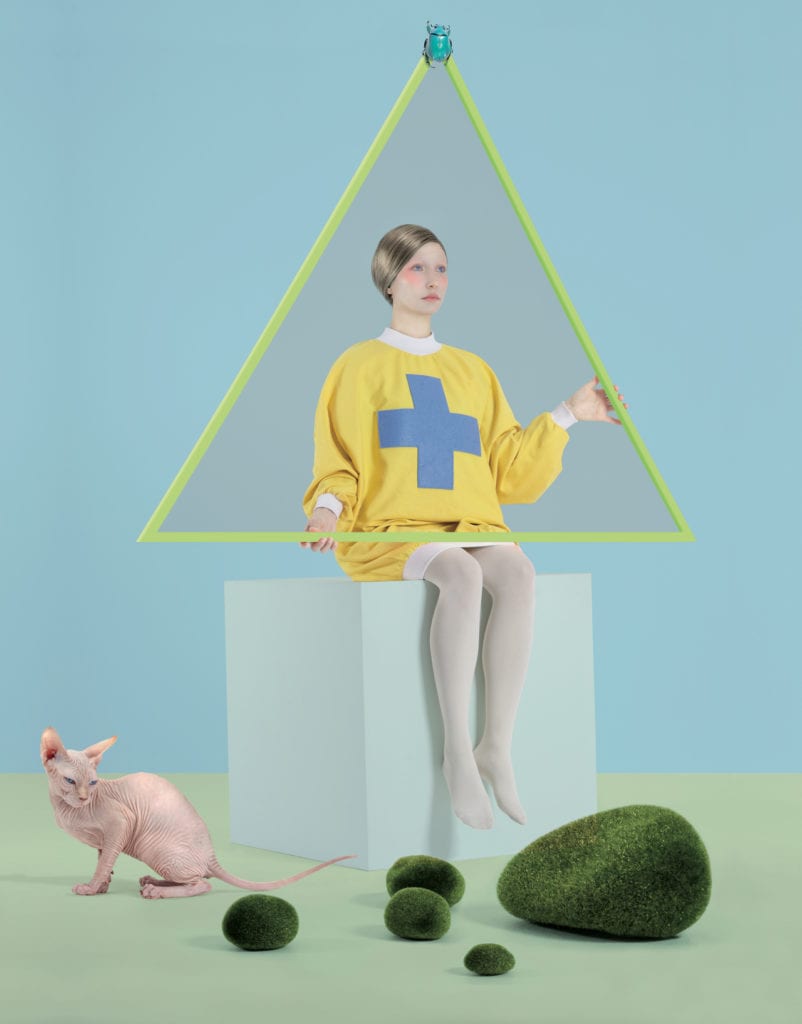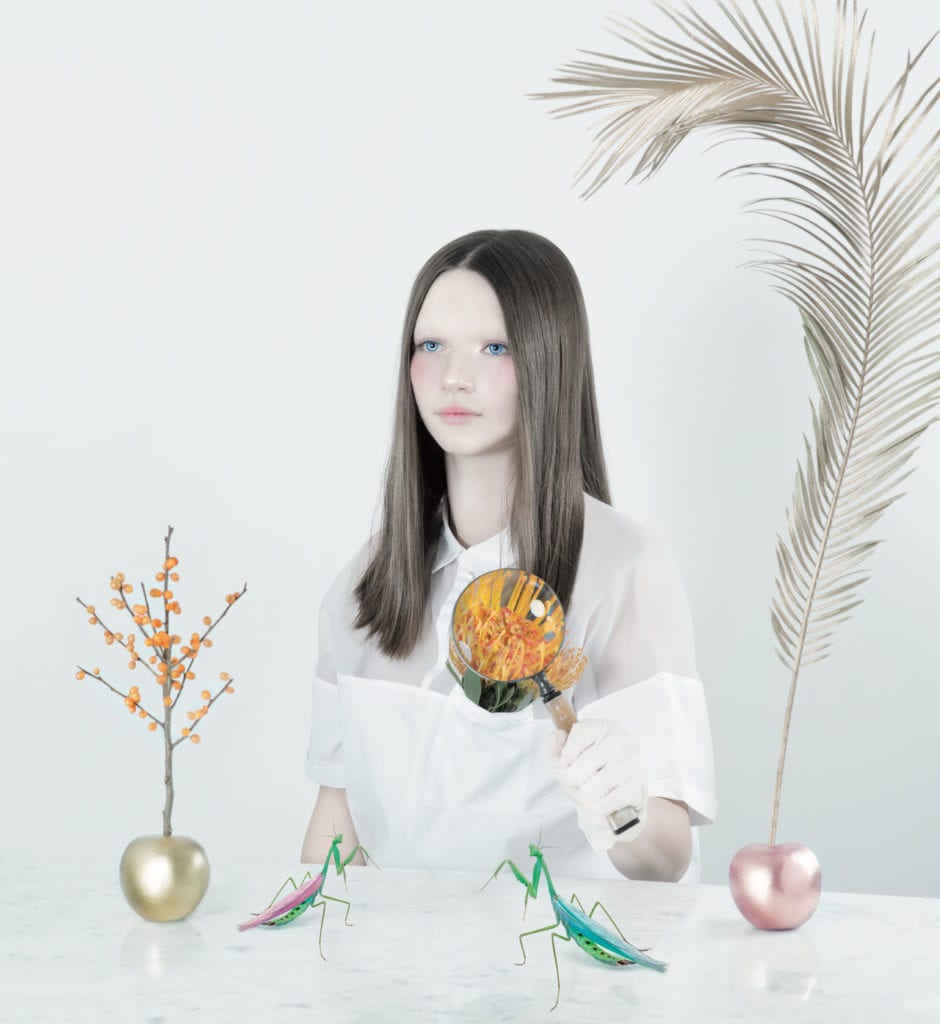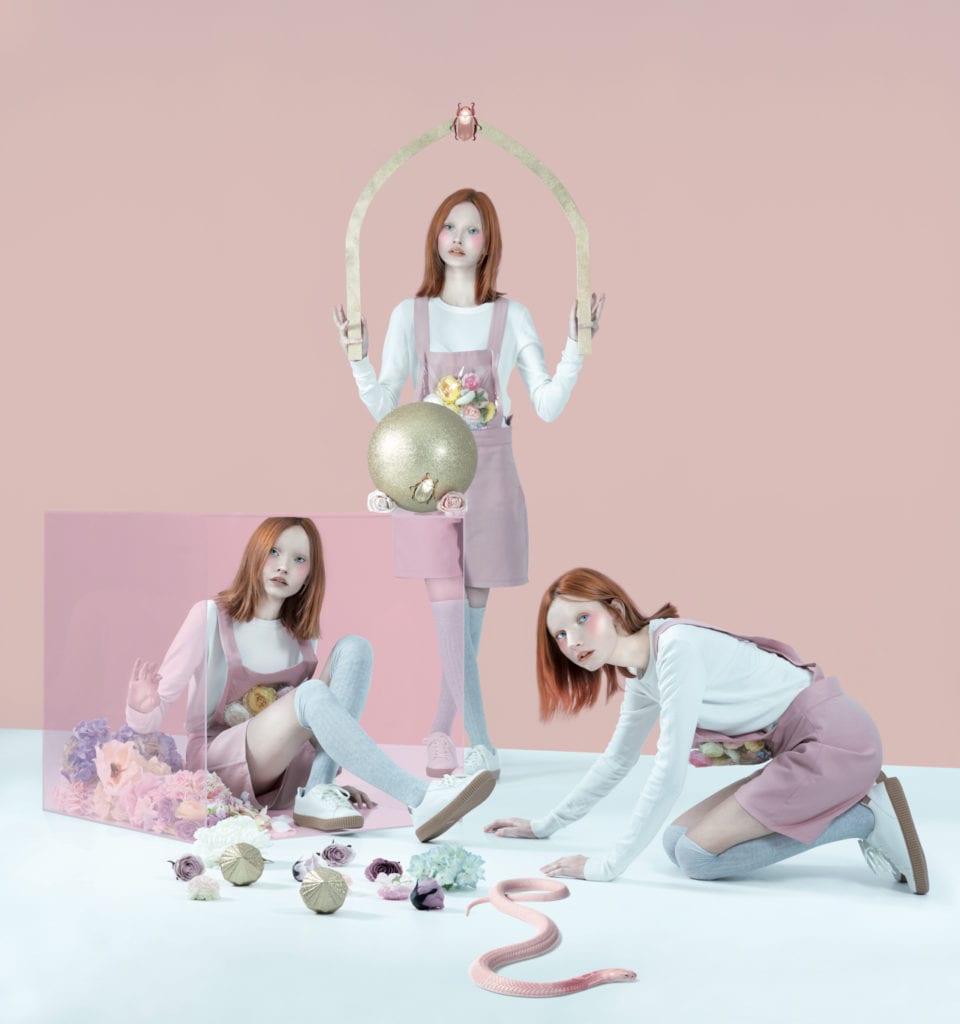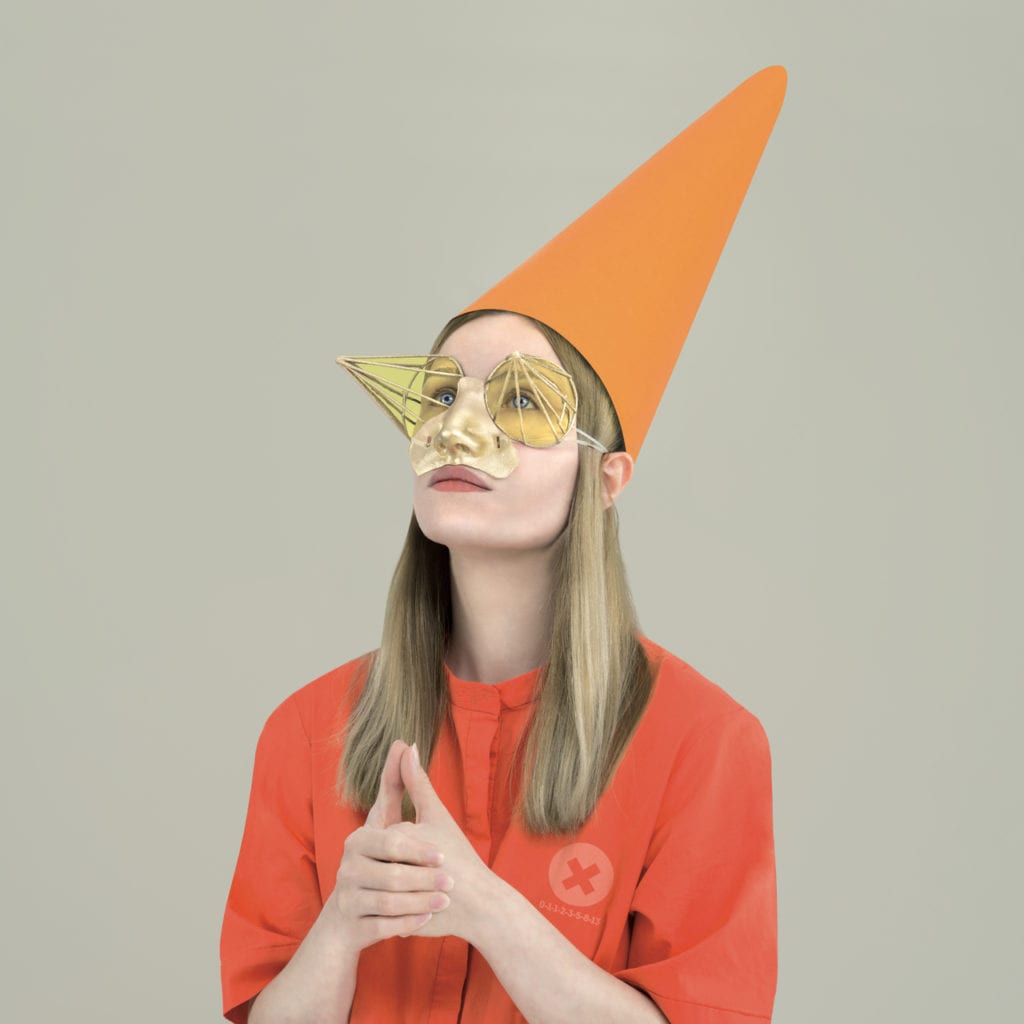Yonca Karakas has been very busy of late. Her first exhibition launched in January and since then she has been planning installations, preparing a book, and getting ready to show her work at FotoIstanbul festival when it launches at the end of September. For the Turkish photographer, the latter represents something of a quandary because she is constantly shooting, which means that her series change almost daily.
“I shoot over 500 frames for a single series and then I pick my favourite ones and work on them,” she says. “This is my catharsis zone where I wander freely and define myself all over again.”
Karakas then does a lot of work in post-processing, painstakingly working over the colours, compositions and details. She says its her favourite part of the process and it creates striking images, a universe of bold pinks and blues, populated by a people who have almost mannequin-like features, soft skin, impeccable hair, piercing gazes. In this, she’s implying a critique of our image-conscious society.
“We are in a period where we use photography more frequently than previously throughout human history,” explains Karakas of her inspiration. “We feel the need to share where we go, what we eat, what we love, and even our silliest thoughts. When we do that, we use perfect filters and pretend to be much better than we are. We are all very knowledgeable and sensitive people. We have excellent postures accompanying our excellent appearances.”
Karakas suggests that we live in an age of extreme consumerism, in which everything is disposable – we will look at images instead of reading, pause and change TV shows and films at whim, discard one viewpoint for another with ease, even abandon each other without second thought.
“We are criticising everything; art, science, politics, animal rights, human rights, simply anything we can imagine. Yet we continuously declare our opinions as correct under our perfect profile pages. Are we really so good? I don’t think so,” says Karakas.
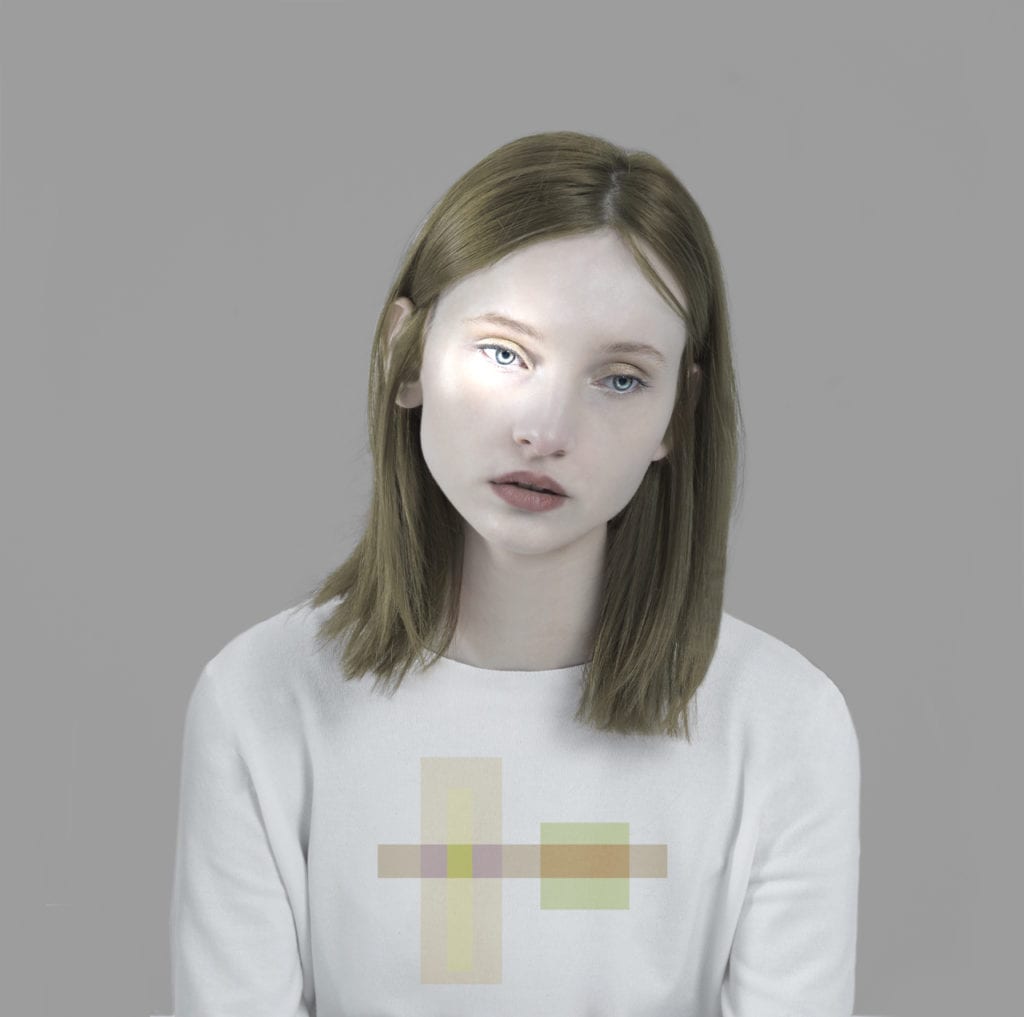
For Karakas, distorting the world has provided an escape, though one that is scary as well as satisfying. Karakas has studied anatomy by looking through medical books, which she describes as a fascinating resource; she then takes the information she has gleaned and alters parts of the human body, piece by piece, as if it were a structure made up of individual shapes.
“In The Anatomy of Things, I mainly wanted to change the appearances of the people around me anatomically,” says Karakas. “When doing the retouching, I liked seeing my friends, my family and loved ones moving away from themselves. Once finished, however, I felt so strange, because they were still the persons they used to be and all sincerity was replaced with a plastic reality.”
Karakas says she’s also inspired by her love of cinematography, and she studied both photography and video art at Yıldız Technical University in İstanbul. Worlds created by directors such as Andrei Tarkovsky, Lars von Trier and Alfonso Cuaron have all fed Karakas’ imagination in recent years, as she has found new methods of expressing realities so tangible yet so different from ours.
And it’s not just humans that feature in her photographs either: animals are often close to the main subjects, frequently appearing as meat or as trophies. For Karakas, the animals represent both our human instinct to possess and own other creatures, and the fact that we too are animals.
“The goat head on the desk, or the pig on the wall, or the meat inside the frame. All of these belong to creatures living on earth. Modern people see the vaccinated pets in fancy shop windows almost from this same perspective and don’t recognise it. We like to possess, we fancy playing once we possess them. We want to eat them.”
Ultimately, says Karakas, her photographs are an exposé of human greed. We want to be perfect, have enviable possessions and define ourselves favourably in our societies. “Photography is the only resort where I keep myself busy in this soul-destroying reality,” she says.
https://yoncakarakas.tumblr.com/ FotoIstanbul is open from 30 September – 22 October https://fotoistanbul.org
